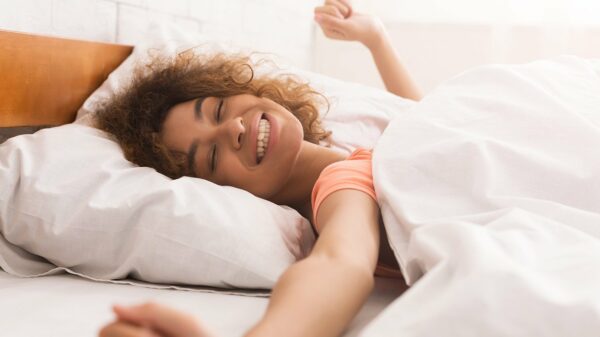Imagine that the night before a morning at work, you were out late. Maybe you were drinking into the small hours, partying with friends at the Victorian Bathhouse or schlepping from bar to bar for some sort of celebration. Never mind that it was Monday night. Your day at work is going to be terrible, not just because you’re hungover but also because you haven’t slept. It doesn’t even matter if you’ve managed to avoid the hangover, a lack of sleep is going to put a full stop on your performance. You aren’t your usually productive self.
But the rest of the time, when you’ve gone home, been sensible, and gone to bed, are you really performing at your maximum capacity the next day? There is every likelihood that you are never at your best. You might be more tired than you think, and all because you’ve been making a big mistake each evening.
Fatigue is no small problem. It leads to accidents and errors, and poor judgement. At work, one’s performance suffers when one is fatigued. Everywhere else, we lack concentration, which makes everyday tasks like cooking and driving much more hazardous. For too many people, fatigue is commonplace. It is an accepted symptom of our technological condition. Our devices aglow, we subject ourselves to a consistent stream of useful and useless information. What we all have in common: we are very much awake.
It is these bright devices that can be blamed for so much of our sluggishness. They upset our biological rhythms, stave off sleepiness in the evenings and keep us awake long into the night. The next morning, we feel poorly rested. Our eyes, as gateways to our brains, take in unhealthy levels of light from these little and large screens. Our brain chemistry is thrown off, and melatonin produced at worryingly low levels. It is melatonin that sends us to sleep, an ancestral response to the sun going down which makes us drowsy, and without it, we feel no need to go to bed.
We need sleep to repair our minds and bodies, to rejuvenate ourselves for the day ahead. Come morning, if we haven’t slept a wink or slept for too short a time, the rest of the day will be spent battling drooping eyelids. Gulping down coffee only compounds the problem, and self-medicating with caffeine is no substitute for a whole night’s rest. To get the most out of our day, we must try and improve the quality of our sleep.
Tablets, mobile phones, laptops and the like all emit high levels of blue light. They aren’t solely responsible for the blue light we absorb — the sun is the biggest culprit. But our bodies are trained to be wakeful while the sun is up, and only while the sun is up. Blue light at bedtime needs to be cut out.
There are a few solutions to the blue light problem, some more drastic than others. First of all, it would be perfectly effective to turn off every light in the house and wander around in the dark until bedtime. Effective, but not practical, and it comes with an unacceptable risk of stubbed toes.
Orange goggles are another (feintly ridiculous) option. Specialist eyewear will cut out blue light rays all together, and help promote sleepiness no matter what one does before bed.
For some devices, there is software that casts an orange hue over a device’s display. Programs like f.lux help to reduce the amount of blue light that a display emits. They can be set to vary the strength of the orange tint depending on the time of day, and can even be set to show only red light, which doesn’t affect night vision or disrupt melatonin production.
Solutions that change the cast of a device ignore an additional element of the sleeplessness problem, however. There is an element of concentration that might distract us from sleep. Playing a game or watching a video occupies our mind in a way that demands alertness. This may keep us awake just as much as blue light.
The only way to totally combat the effects of digital devices on sleep is to quit their use before bedtime. Setting aside an hour of light reading or doing as little as possible might encourage sleepiness before bed, and during this time one should abstain from using anything with a screen (except perhaps an e reader).
Rebecca D'Souza is a freelance writer covering all aspects of business and technology.





















































































































































































